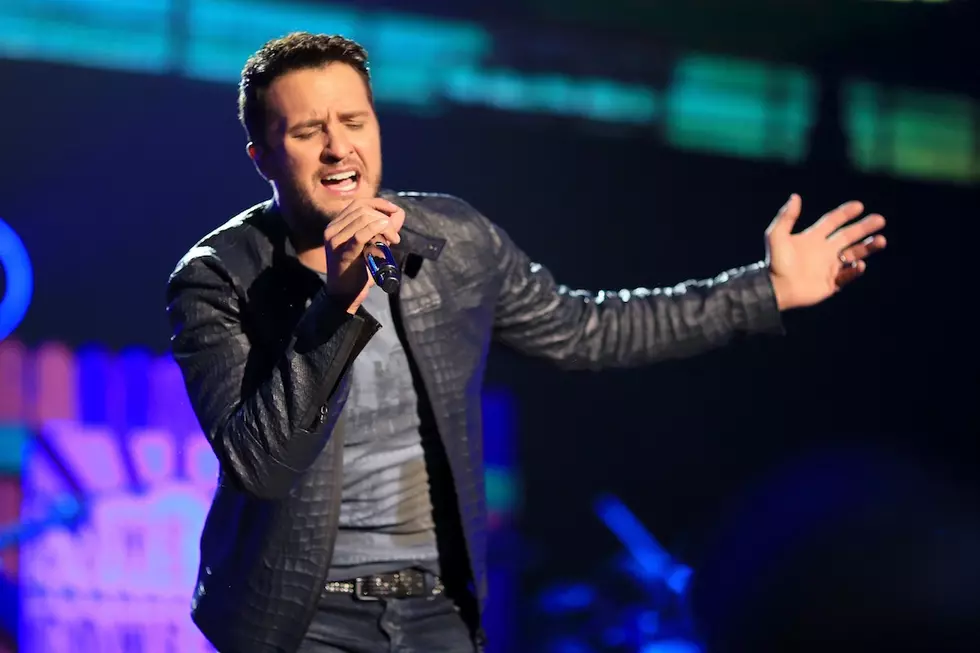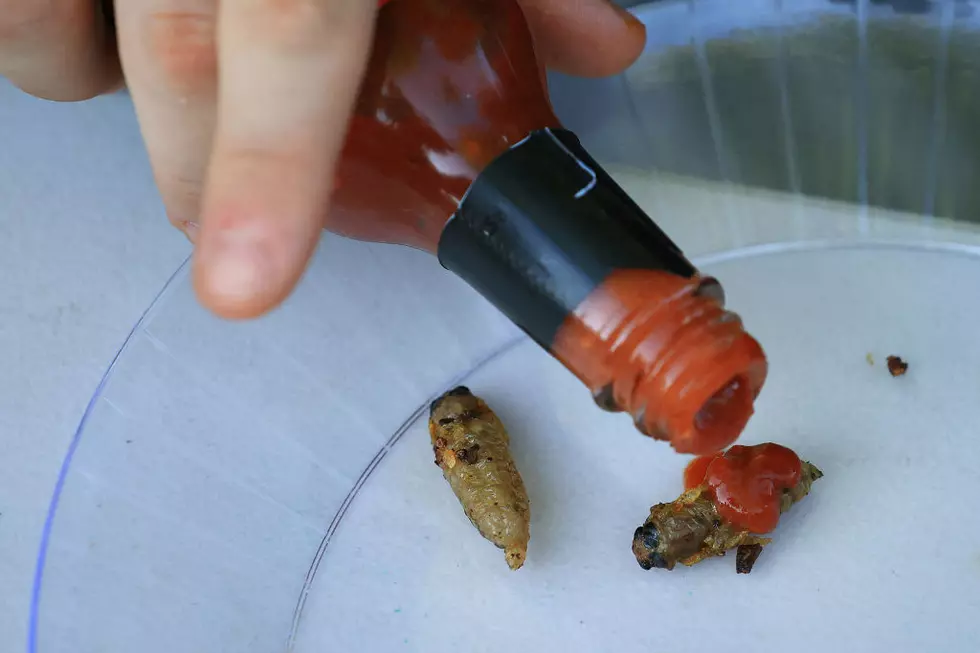
Interview: Environment Plays Big Role in Billy Don Burns, Shooter Jennings’ ‘A Night in Room 8′
Songwriter and artist Billy Don Burns is well-known and well-respected among some of country music's biggest legends: Throughout the past several decades, Burns has collaborated with iconic names such as Waylon Jennings, Harlan Howard, Willie Nelson, Merle Haggard, Kris Kristofferson and Wanda Jackson on a variety of projects, while also spending time in and out of rehab and jail, battling the demons of addiction.
In a moment of sobriety, Burns and Shooter Jennings came up with an inspired and ambitious album: A Night in Room 8, recorded in Room No. 8 at the Joshua Tree Inn in Joshua Tree, Calif. -- the very same room where Gram Parsons died in 1973. Jennings signed on as the producer of the project, which was first released as part of Record Store Day 2016's special offerings.
Burns and Jennings sat down with The Boot to discuss A Night in Room 8 (available on vinyl at Amazon and for download on iTunes), their recording process for the record and the permanent bond the creation of the disc forged between the two men.
How did A Night in Room 8 begin?
Billy Don Burns: I like things like that. I like Joshua Tree; I’d been there several times before.
Shooter Jennings: It starts a long time ago: We met at a mutual friend of ours' house. My wife, Misty [Swain], is the reason for the whole thing, how Billy Don and I became friends. I got asked to come down by another friend and record in North Carolina with him. At the time, my wife and I were just dating, and she was a big Billy Don Burns fan and had a record of his that she really loved and played it for me: [2004's] Heroes, Friends & Other Troubled Souls. It was a beautiful record, and she was really into it, and [my friend] said, "Hey, I can invite Billy Don down to the session. Do you want to come down?" I said, "Yeah, my wife would love to meet him."
We were doing something together, and I had this idea of doing something in that room. It hit me, and then I thought, me and Jon Hensley -- Col. Jon Hensley, my manager who passed away [in June of 2015] -- we started kicking around the idea of doing a Billy Don record, and it just struck me to do something in that room. I said it to Billy Don, and he said, "I like that idea."
What was the mood like in the room while recording A Night in Room 8?
Burns: It’s not hard to love Shooter and Misty and Jon. They treated me like family. So it was a mystical time. To me, it’s like we were in a bubble: We were laughing around and in all kinds of moods, I guess. I don’t know if Shooter wants to go into that or not ...
Jennings: To me, the idea of there being this environmental element to the record that you can’t hear, necessarily, or you can’t see -- it wasn’t like having a guest on the record, but it was like going to a sacred place and respectfully doing a record there ... So there’s, like, five other people in the room, and you can hear that.
I never heard a record quite anything like that, to be able to really take this intimate vibe, but not muting the life of it, the laughing, or taking a break.
How long did it take to record A Night in Room 8?
Jennings: We thought we were going to do it over a couple of days, and we did spend a couple days recording it, but we used only the first night. We went up until about whatever time it was Gram passed, and that’s when we did the Gram song ["When Gram Parsons Died, I Was Playin' Hank"]. We just kind of held on. It was kind of like an experiment ... There was like a fifth wall through the whole thing, not necessarily what the listener would pick up on.
The environment was a player in it. We were just laughing, cutting up, sitting on the bed, talking. I came home, and I think I had 13 cassette tapes. Afterwards, I went through them all. It literally took me about half a year to really kind of dice it all up correctly and get all the pieces in there. You can hear the different moods, you can hear the joking, you can hear the stories, you can hear people in the corners. To me, it was really like capturing kind of this special energy that we had in that room and then trying to preserve that. There was a lot of weird technical things that happened.
Billy Don, you said that A Night in Room 8 was recorded during a moment of sobriety for you. Why was that important?
Burns: I was an addict at that time. I know that it had to be hard on Shooter and Misty sometimes. Shooter packs out these big joints all over the country. His work is so great. I had to be a burden on those guys, but I guess everybody knows that anyway --
Jennings: He’s not a burden!
Sorry, man, didn’t mean to cut you off ... I have to say one thing about that: Billy Don has had his fight with addictions and all that. I think, in a way, that that was important, where he was. Shortly after that, he went through a lot in gaining sobriety.
It’s never something that ends. I get it; my dad had his own things with addiction. But Billy Don, the thing about him is, he’s got so much heart and soul. He never put that on anybody. Some people, they turn into a different person, and Billy Don’s heart was always there. He was so worried about not impeding on someone else, he’d walk all over himself.
He’s such a kind person. He comes across in his humor and in the storytelling and things like that. That doesn’t get captured a lot in records. That’s why this one is so important, trying to keep all these stories, and his self-deprecating humor sometimes. There’s so much charisma in that. That was the thing that I was the most trying to get across in this record.
Now that A Night in Room 8 is out, what are each of you planning next?
Burns: The record I had out before this, Nights When I’m Sober, that record company is out of North Carolina. It’s a two-record deal I made with them, and then Shooter wanted to do the Gram Parsons thing, so I went to Ralph Miller, who is the CEO of Rusty Knuckles Records, and I told him that I’d like to do that with Shooter and would that be alright with him and we’d do the one I owed him next. He said sure, so I’m actually working on the next album for Rusty Knuckles Records.
Jennings: I’m working on a lot of stuff; I’ve got a lot of stuff this year. I’m working on a record with Julie Roberts, and we’ve spent a whole year on that ... I’m excited for her to find a home for that record.
And then I’m working on some other projects that will be coming out later this year. [In March, I] finally got my Countach [(for Giorgio)] record out, so that was a good year and a half of my life.
I’m in constant perpetual motion. If I can keep a record in the works, I kind of feel like I’m getting something done.
Shooter Jennings + More Country Artists With Famous Relatives
More From 95.3 The Bear
![Lukas Nelson, Shooter Jennings Cover Famous Fathers on ‘Mammas Don’t Let Your Babies Grow Up to Be Cowboys’ [Listen]](http://townsquare.media/site/204/files/2020/01/lukas-nelson-shooter-jennings.jpg?w=980&q=75)









